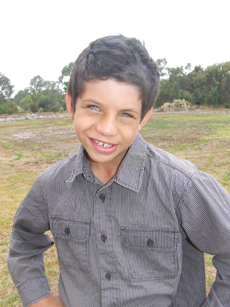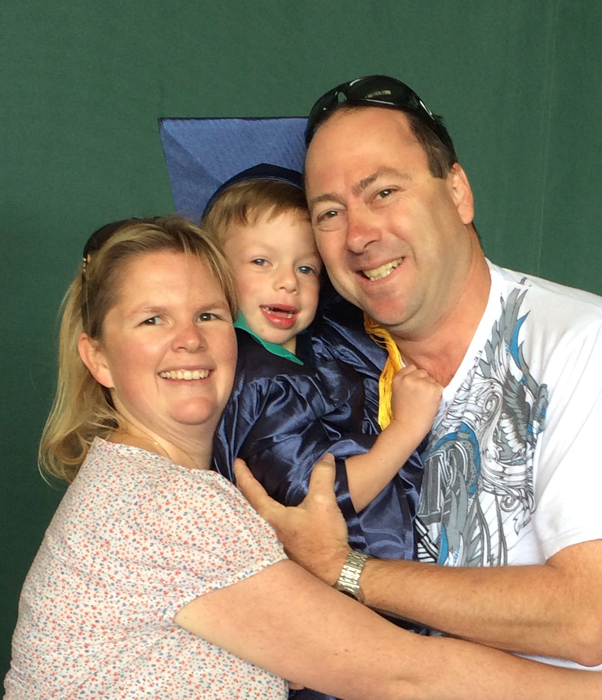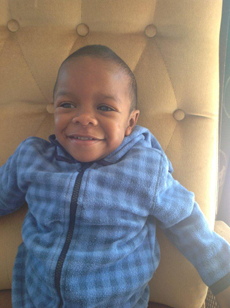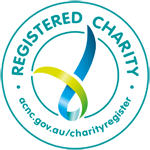






Frequently Asked Questions
Is it my fault that my child has Williams Syndrome?
No, nothing you have done or not done has caused your child to have WS, which is a randomly occurring genetic condition. Looking for someone or something to blame is a fruitless exercise. The fact your child has WS does not make them any less your child or any less perfect to you.
What causes Williams Syndrome?
WS is a microdeletion of genetic material from a specific region of chromosome 7.
Is there a cure for Williams Syndrome?
No, there is no cure for WS. It is a lifelong condition but a number of the conditions caused by the microdeletion can be very effectively treated.
Is there treatment or therapy for Williams Syndrome?
There is no single treatment or therapy used for WS but a multi- disciplinary raft of treatments and therapies such as physiotherapy, occupational therapy, speech therapy, music therapy, specialist advice regarding feeding and sensory integration disorder and psychological therapy can help to address or advance some of the issues and delay associated with the condition. There are also many physical problems such as heart problems, as only one example, which can be treated. Not everyone with WS will need every therapy or treatment but evidence shows the earlier positive intervention starts, the better the future prospects.
Could anyone else in our family have Williams syndrome?
It is extremely unlikely but not impossible that anyone else in your family has WS. If a medical professional tells you otherwise, you should ask them to contact the Association. It is, however, sometimes the case that the geneticist who made the positive diagnosis will want to conduct tests on parents to see whether there are any anomalies or anything unusual in their genetic make-up.
My child has been diagnosed with WS and I/other family members have been told they must be blood- tested for it.
A Geneticist who has made the positive WS diagnosis may want to conduct tests on parents to see whether there are any anomalies or anything unusual in their genetic make-up. You should ask the geneticist about this if it is suggested that you or other family members should be tested and ask them to explain exactly why they are requesting further tests.
If we have more children, will they have Williams Syndrome?
It is extremely unlikely but not impossible that any further children will have WS. Recurrences are extremely rare. There is only one genetic way this could happen, which has not been seen in many years involvement with WS. This is that a parent might have a patch of cells in the ovary or testis with the chromosome 7 deletion already present (gonadal mosaicism) and thus produce more than one egg or sperm with the deletion. Some people carry an inversion of the region and some think this predisposes to formation of deletion in an egg or sperm but you only have to ask yourself where are the siblings with WS?
My WS child has feeding problems. What do I do?
You should speak to your GP or Paediatrician and ask for advice and/or a referral to a relevant specialist. You should also ask about guidance on weaning issues and if necessary a referral to an occupational therapist for guidance on texture intolerance in eating. You can contact the Association for further advice.
My WS child will not sleep. What do I do?
You should speak to your GP or Paediatrician and ask for advice and if necessary a referral to a relevant specialist such as a Clinical Psychologist. You may want to discuss medication to promote sleep if the medical professional thinks it appropriate. You can contact the Association for further advice.
My child has WS – will they go into mainstream or special needs education?
This differs child to child and must be based on expert advice and where the child will be happiest, best settled and, therefore, able to learn. It is often the case that people with WS move between mainstream and SEN settings throughout their time in education, depending on what is best suited to them at the time.
Our Doctor has never heard of Williams Syndrome. What should I do?
Currently about 1 in 30 GPs ever meets someone with WS so it would not be unusual for your doctor not to have come across it in practice. You should ask the doctor to contact the Association for information.
When will a WS child go through puberty?
Some children with WS go through a so call “precocious” or early puberty. This is something to discuss with your doctor and if necessary ask for a referral to an endocrinologist (hormone specialist) for advice.
When will a WS woman go through menopause?
Some women with WS may go through an early menopause and advice should be sought from your GP if this causes any problems.
Can WS people have children?
There are no significant physical reasons why people with WS cannot conceive normally but their own health may pose a potential risk, particularly if they have a heart condition. There are also issues to consider about the reality of coping with pregnancy, birth and a child or children.
Will a WS person’s children have WS?
There is a 50% probability that a person who conceives a child with a non WS person will have a WS child. If 2 WS people conceive the child is 75% likely to have WS.
My child is diagnosed with Williams Syndrome. What about the heart condition?
You should speak to your GP or Paediatrician about a referral to a cardiologist. Many children reach the diagnosis of WS through their heart condition. If your child is diagnosed with WS because of another reason, they should be referred to a cardiologist to ensure they do not also have a heart problem. The cardiologist will then be able to clarify whether any tiredness or breathing problems relate to their heart.
My child has been diagnosed with WS – What is their life expectancy?
WS does not generally cause significant reduction in life expectancy unless there is a significant heart or kidney condition. The premature ageing of organs caused by the condition can mean that a person with WS, whilst able to enjoy a relatively long and healthy life, might not have the same life expectancy as a person without WS.
My child has been diagnosed with WS- could they have mild or severe WS?
It is always tempting to hope that your child has a mild form of the condition. The fact is that the greater the positive input from an early age, the higher the likelihood of a fulfilling life.
My child has a Williams Syndrome diagnosis and I have been told they also have Autism. Can this be right?
In some respects WS is the polar opposite of ASD, the gregarious and socially open nature of WS people contrasting with the socially isolated and non- verbal classic ASD profile. There are cross-over behaviours such as an obsessive interest in spinning or rotating things, heightened interest in things like trains, hoovers and electrical appliances.
My WS family member cannot cope with certain noises- why?
Hyperacusis or a heightened sensitivity to noise (pitch as well as volume) is very common in WS. It is not to be taken lightly; noises which others take for granted can be hugely distressing for people with WS; even laughter at a certain pitch can cause problems. It can occur at any time and the noises causing particular anxiety or distress can change on a daily or long term basis. You should discuss the matter with your doctor and if necessary ask for a referral to a sound therapy clinic or discuss the use of ear defenders. You can also contact the Association for assistance.
Is there a recommended diet for people with WS?
Currently there is no single recommended diet for people with WS Infantile Hypercalcaemia, which can be a feature of childhood WS is treated with a low calcium diet. You should speak to your doctor and ask for referrals to a dietician and/or nutritionist.
